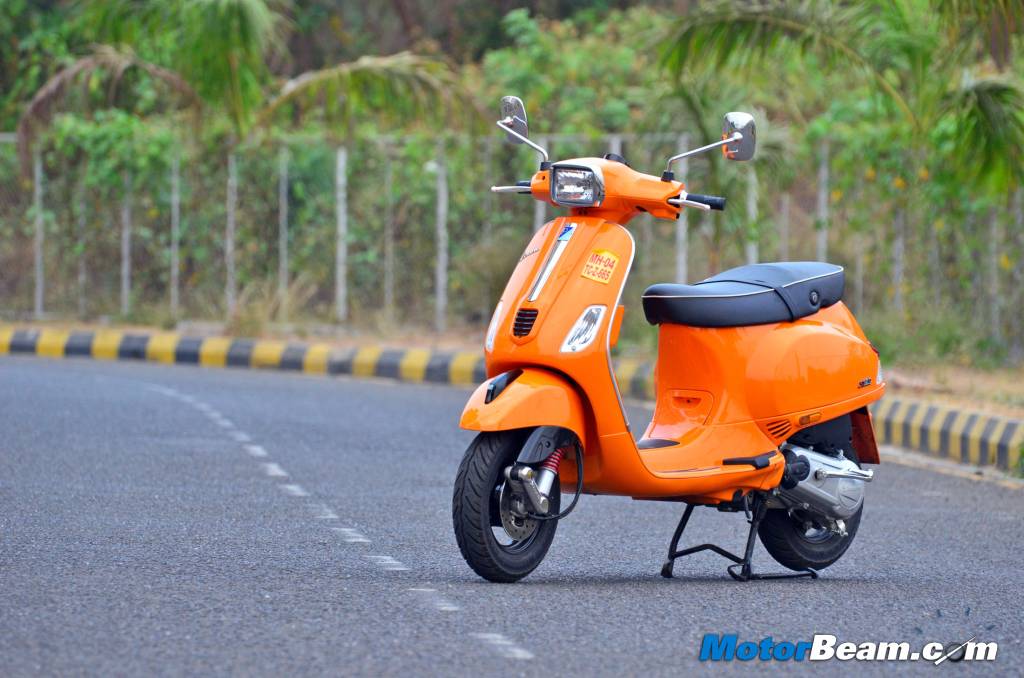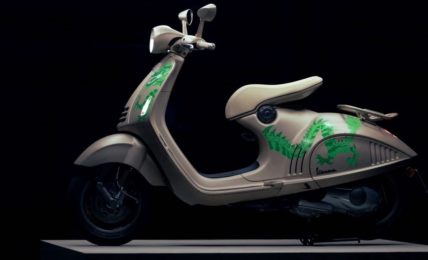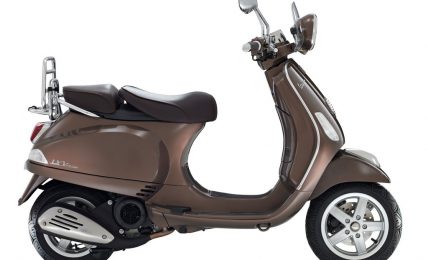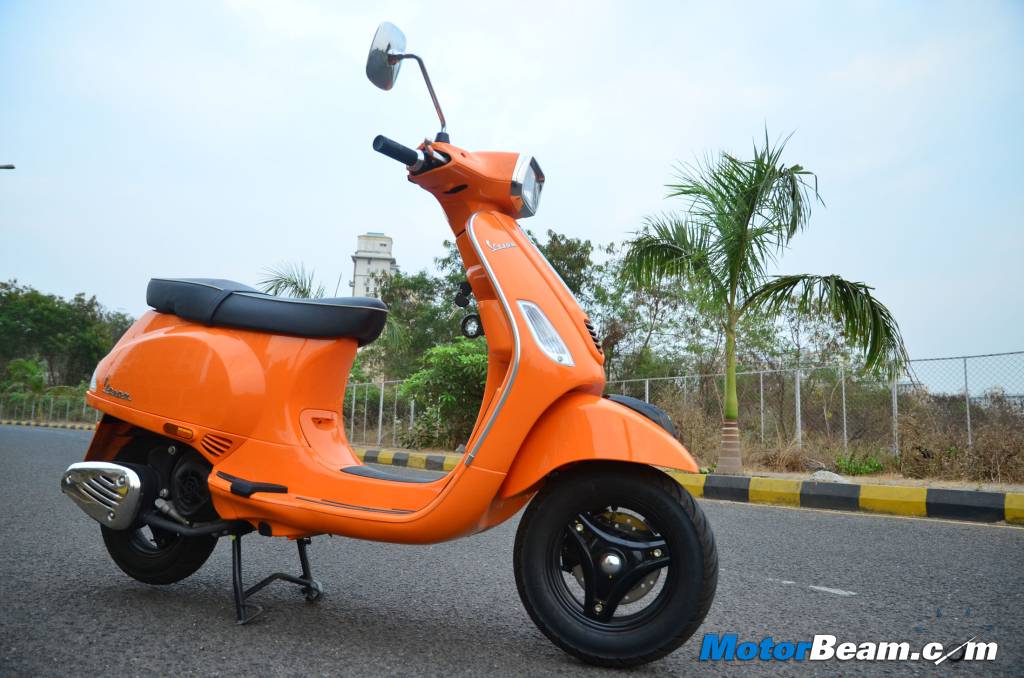
Piaggio Vespa S Long Term Review
Bike Tested: Piaggio Vespa S
Kms Done: 1201 kms
Test Started at: 10 kms
Test Concluded at: 1211 kms
Fuel Cost: Rs. 2017/-
Liters: 25.20
Mileage: 48 km/l (Combined), 46 km/l (City), 50 km/l (Highway)
The Vespa S is the most eye catchy scooter on Indian roads, it’s the most expensive too.
The Vespa is the latest scooter brand to enter the Indian market with a bunch of variants now on sale. However, it’s not a new brand into the market. Our fathers and grandfathers have witnessed several tie-ups over the past 44 years. First time it was with Bajaj, then it was LML and finally they are here on their own. The point is that, over the years, Piaggio knows what Indians want with the Vespa and what they do not want. At one time there was a monopoly, not anymore. With the market leader being a Japanese firm and other followers being the same (including our very own TVS), the market has become very scooter friendly. Piaggio saw all this before entering the market and decided to keep the same structure of the business yet again. Yes, they decided to keep the Vespa pricey but this time around there is no 10 year waiting period. At roughly around Rs. 85,000/- (on-road, Mumbai), the Vespa S is by far the most expensive scooter ever!
The instrument console has been modified with the use of a die cast panel over it
Scooters are cheap, easy to run, maintain and buy. However, that’s not the case with the Vespa S as Piaggio does not believe in those wants of buyers. Has the Italian firm succeeded over the years with the Vespa LX? Certainly not. Commercially? No! Emotionally? Yes! However, companies do not function that way, they need money and hence a second attempt with the Vespa VX and Vespa S. Priced slightly higher than the VX, it’s certainly not going to help. We kept the scooter for a long time to analyse whether it is really worth the extra money you pay over a normal scooter? We find out as we do roughly around 1200 kms (65-70 kms daily) with it around city and highways of Mumbai.
No side stand, grab rail or floor mats are offered as standard on this expensive scooter
Look at the scooter and you are bound to shout “cute”. The Vespa S looks very snazzy thanks to the super glossy paint job. However our long term scooter was finished in orange, which was hated by most, right from 16 year old boys to 55 year old folks. The famous yellow, white and red are the colours which gel well with this retro design. The black wheels and red springs add to the sporty appeal. Aluminium finish chrome strips on the front panel look odd. Sure, it is thoroughly European but it just does not make its point clear. Chrome mirrors and headlight add a lot of bling to this retro scooter. Ergonomics are spot on, however the seat height is a wee bit higher than most scooters. It is still female friendly though as it’s easy to manoeuvre. Taking u-turns takes less effort than any other scooter because of the raised handlebars.
Fit-finish is not that great with ill fitment of panels, not expected on a premium Vespa
Fit, finish is also not that great. It is the ill fitted panel, which looks absurd, and they are done so well that you will not even understand that it is a problem here. What also grabs attention instantly is the dash, which is inspired, from older Vespa LX, but it just die-cast panel which has been fitted over the older one. The dash has a clock, a stopwatch integrated to it. The tell-tale lights remain the same as any other scooter but the only addition is that of a headlight indicator. Switchgear is very different from any other scooter out there and it does not fall in hand perfectly too. You constantly end up choosing between the horn, high beam and indicator on the left side for first few months of ownership.
Most powerful engine in its segment or let’s say in the entire scooter segment
Thumb start the engine and it will not start. The self-start is not a feather touch unit unlike all the other scooters out there, pity at this price point. The engine remains the same on the Vespa S. Borrowed from the LX and VX variants, the 125cc motor is smooth in the mid and top rev range but it’s the low speed fuelling which is very jerky. It almost shakes you up between 10 to 30 km/hr. Low end is just about adequate while mid-range offers excellent punch and on the highway you just need to twist the wrist to keep up with bikes of the same category. Producing 10 BHP of power and 10.60 Nm of torque, the Vespa is by far the most powerful scooter in India. It can cruise in absolute comfort and no stress from the engine is felt due to the 3-valve layout. The Vespa S can do a genuine 100 km/hr while the meter shows 105 km/hr when given an extremely long stretch. The powerplant is great but it doesn’t sound that great. It replicates a clatter of a diesel engine at times or it feels that the valves and stems are popping out and dancing every time you put it to full pace.
Dynamics are good at slow and medium speeds, ride quality is excellent too
Dynamically the Vespa S does not live up to the mark. Sure, it is even nippier and with agility in the city like any other scooter. Low to medium speed sweepers and corners are taken well but when it comes to high-speed dynamics and stability, it is completely lacking in that case. High speed sudden lane changes are almost suicidal and the front wallows around, threatening to throw you off. After 70 km/hr, the front and the rear constantly keep bouncing, which is very scary on a scooter. A rider with 90 kgs and above also faced the same issue. Imagine the level of softness of the suspension. Sure the ride quality is great but what is the point of a powerful scooter if you can’t put all that power down safe and sturdy. The tyres are quite grippy and do not lose road at any given moment. Brakes are also excellent on the scooter. Excellent initial bite from the front disc brake but progress after that is a bit jittery and un-progressive. The rear brake is good and refuses to lock up at any point. Handling could have been better as the chassis has a lot of potential but it is the super soft suspension which lets it down completely. After all, it’s a monocoque which is a very advanced chassis in the scooter segment right now.
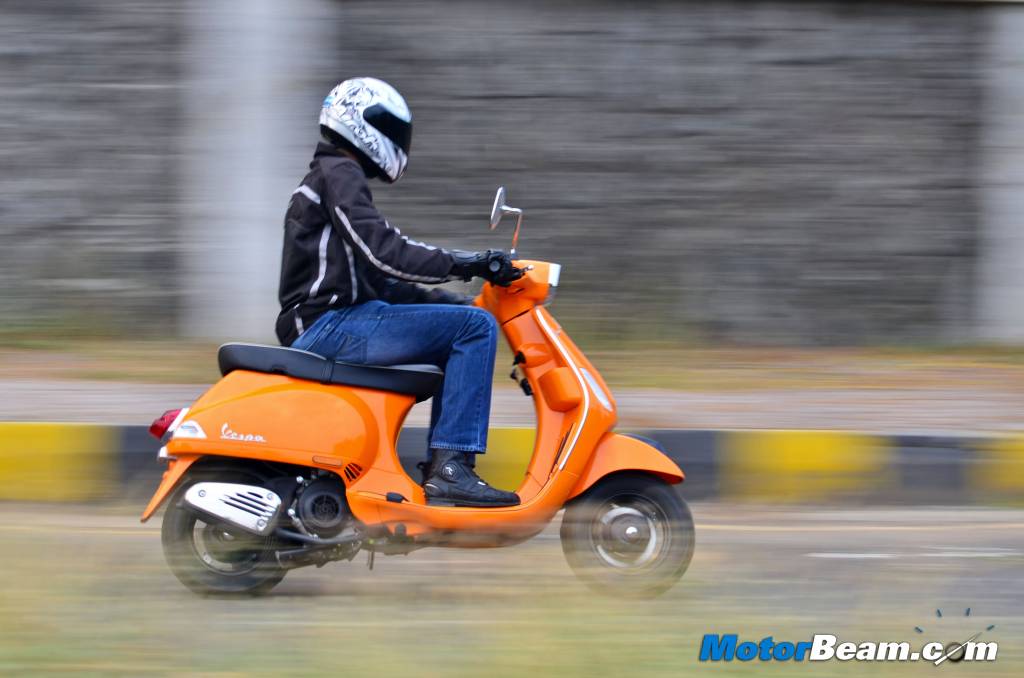
The fuel gauge is well calibrated. 8.5-litre fuel tank, 50 km/l mileage on the highway and a cruising speed of 80-85 km/hr is a recipe for a stress-free long distance journey. The headlight has an incredibly wide and long throw. Illumination is excellent with the Vespa S. The scooter comes with DC lighting as standard (a segment first). Solitary side indicator light at this price point is truly shocking. The clock always stays on. Yes, in spite of you switching off the scooter, the clock stays on. People tend to fiddle with it and end up messing the settings. Attention to detail is purely missing. Horn sounds good and is loud enough too. The under-seat storage looks like the deepest in the segment. However, it is the same size as the TVS Jupiter and can store a full-face helmet easily. Pockets above the floorboard are not that useful as they are not deep. One pothole and there you go ladies, your Blackberry is thrown off and is already under a tyre of an SUV. Usually brakes are on the right side but with the single sided suspension, the brakes on the Vespa are on the left side.
Cost is a major let down as the Vespa S isn’t a VFM product in any way
The Vespa S offers superb city drivability with good highway performance. You pay a price for everything but here in this case, it is just way too expensive and lacks attention to detail. The Vespa S surely does look good but it also costs a lot of money. At that price, you get a motorcycle three times more powerful which is much more fun to ride. Even if you wanted a powerful 125cc scooter, the Suzuki Swish does the job really well for a price tag which is 30% less than the Vespa. Piaggio does need to address a lot of issues before the next upgrade. Oh wait, did we hear that a scooter is on its way which is priced similarly to a base variant of the Honda City? Good luck Piaggio!
Missing goodies and essentials keep the Vespa away from people who want it. The people who want to have it, will not consider it as an ideal scooter for the family. It remains a fashion icon and a ‘toy’ for the rich and famous.
The Vespa S is without doubt the most attractive scooter but comes at a steep price
Piaggio Vespa Cost Of Service
* Paid Service – Rs. 450/-
* Engine Oil – Rs. 240/-
* Spark Plug – Rs. 150/-
* Brake Liner – Rs. 800/- (Front), Rs. 1200/- (Rear)
* Air Filter – Rs. 250/-
Further Reading –
Piaggio Vespa Review
Piaggio Vespa S Review


